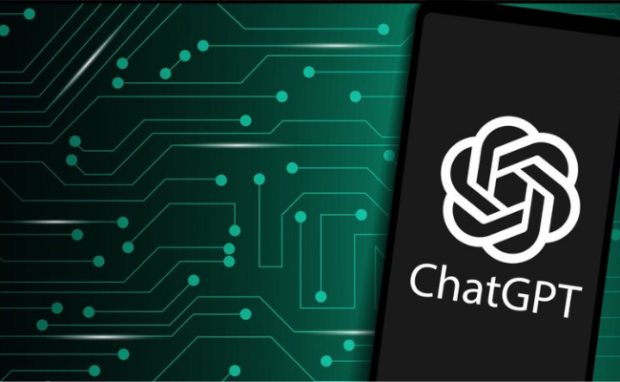GPTBot: How to protect your website against OpenAI’s web crawler
OpenAI deployed its GPTBot web crawler, which can help the company prepare its upcoming GPT-5 large language model. In other words, the AI company will scrape online data to develop another significant upgrade for ChatGPT. Fortunately, OpenAI provided a way for websites to prevent the tech firm from scraping their data.
Despite being less than a year old, this generative AI tool has become a staple for many worldwide. People use it for daily tasks, but some worry the program puts their data at risk. Consequently, you should read this article carefully if you worry about artificial intelligence encroaching on your business or online content.
This article will discuss how to keep GPTBot from using your website data for AI training. Later, I will explain why some people believe OpenAI will use online content to create a more powerful chatbot.
How to protect your website from GPTBot
OpenAI announced its web crawler GPTBot last week, meaning it started scraping internet data. It identifies with the following user agent and string:
User agent token: GPTBot
Full user-agent string: Mozilla/5.0 AppleWebKit/537.36 (KHTML, like Gecko; compatible; GPTBot/1.0; +https://openai.com/gptbot)
If you see this on your server, that could mean OpenAI is scraping your site data. Fortunately, the company says you can disallow GPTBot from accessing your website by adding this string to its robots.txt file:
User-agent: GPTBot
Disallow: /
Access your website’s robots.txt file by typing your domain name followed by “/robots.txt.” For example, go to “www.mywebsite.com/robots.txt” if your website is “www.mywebsite.com.”
You may also like: The Ultimate ChatGPT Guide
Also, OpenAI provided another text string to customize GPTBot access. Enter this string first, then place the pages you’d like GPTBot to scrape and ignore:
User-agent: GPTBot
Allow: /directory-1/
Disallow: /directory-2/
Enter the URL pages you’d like the web crawler to check in the “Allow” category. Conversely, type the ones you want to leave untouched in the “Disallow” section.
Why would OpenAI scrape internet data?

Photo Credit: insidetelecom.com
Perhaps the biggest reason the ChatGPT creator needs website data is GPT-5 development. The AI firm hasn’t specified a reason at the time of writing, but it filed a trademark application for GPT-5.
A trademark prevents others from using that name or its features, implying the tech firm would release GPT-5. GPT is the large language model OpenAI uses for the world-renowned ChatGPT program.
“GPT” means “generative pre-trained transformer,” meaning it must receive “pre-training.” That training involves feeding the LLM data to refine how it analyzes and processes them.
ChatGPT could face one of the biggest challenges for modern artificial intelligence systems: the lack of training data. Nowadays, AI bots are running out of manmade data for training, so they are scraping AI-generated content.
Unfortunately, that can quickly degrade their performance as AI programs repeatedly learn from their patterns. As a result, they could become unreliable and obsolete.
Another reason is AI companies want their programs to become more useful to attract more users. That can only happen if these chatbots can refer to live online information.
You may also like: Make AI do everything with AutoGPT
Nowadays, OpenAI and other firms have enabled their AI bots to scrape online data. However, they usually warn users it may not always be reliable.
After all, it can be difficult to filter what an AI bot will use as references. The Internet is full of misinformation and poor-quality content, and programming an AI to check them before giving results is nearly impossible.
Still, that doesn’t stop OpenAI from trying with its upcoming GPT-5 model since it filed a trademark. GPTBot could be its next step to turning ChatGPT’s next version into a reality.
Conclusion
OpenAI recently announced its GPTBot web crawler will scrape data from websites. Fortunately, it provided a way for companies to protect their platforms.
Meanwhile, Google proclaimed a similar development but hasn’t provided a way to opt-out. It said it would provide that option, but it hasn’t at the time of writing.
You should try the steps above if you have a blog, art gallery, or similar online content. It is especially important if you want to protect your online business. Also, check out Inquirer Tech for more digital tips and trends.
Frequently asked questions about GPTBot
What are the risks of AI training?
AI training could risk peoples’ intellectual property by learning how to imitate artists’ works. Soon, artificial intelligence systems could put creative individuals out of business. Moreover, GPTBot could risk business secrets, risking company data privacy. Use the tips above to protect yourself from this web crawler.
Should I prevent GPTBot from scraping my data?
You should keep GPTBot from accessing your online data for privacy concerns. However, you may want it to access specific pages if you rely on ChatGPT. Consequently, the AI bot could serve your daily needs more effectively. Fortunately, you can specify which pages to expose and hide from GPTBot.
Is GPT-5 coming soon?
OpenAI hasn’t specified a release date for GPT-5, and CEO Sam Altman said his company wasn’t developing this upgrade. However, OpenAI recently filed a trademark application for GPT-5 and then released a web crawler for AI training. As a result, many sources speculate it may launch this new chatbot soon.